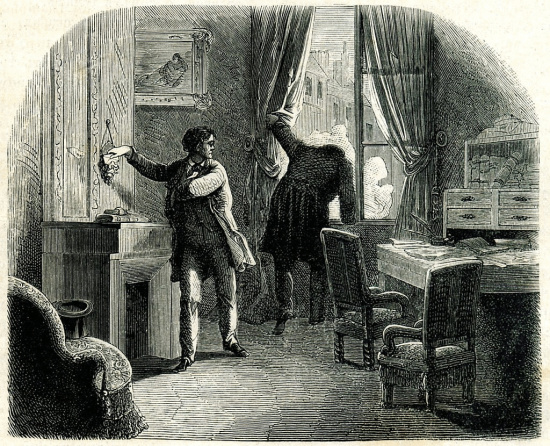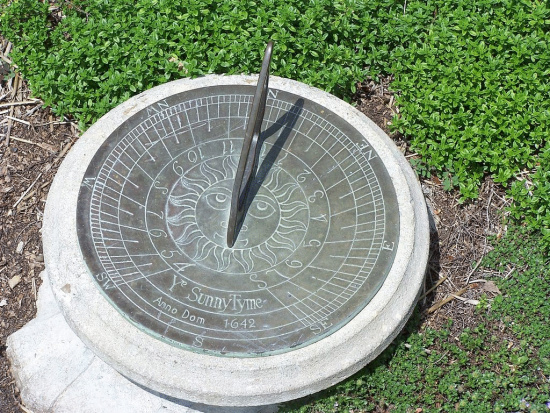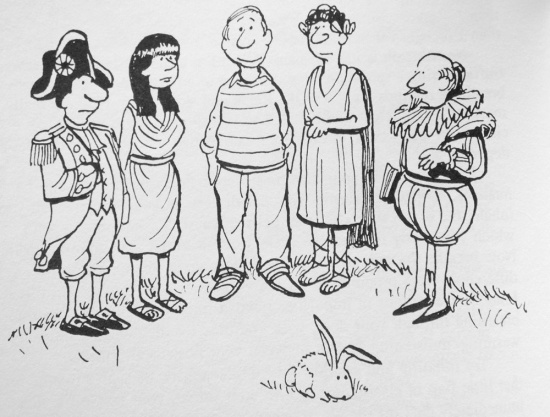The fish is the last to see the water.
— Ruth Benedict (1887-1948), American anthropologist
A letter that could compromise the French government has been stolen from a lady’s boudoir.* It’s believed to have been taken by an unscrupulous politician, and is almost certainly in his home. The police can’t accuse him, for fear the letter would be published, so they’ve made secret searches of his residence, looking in every conceivable hiding place: hollow chair legs, secret panels, the linings of books. It seems everything and everywhere has been checked, without success. Where is it?
The police chief consults with C. Auguste Dupin (forerunner of Sherlock Holmes and dozens of other fictional private detectives) who deduces that the letter is hidden in full view. Sure enough, he finds it hanging over the fireplace in the politician’s living room, as obvious as obvious could be. And of course, he re-steals it, saving the day.
“The letter being stolen again,” by Frederic Lix.
That’s the plot, in brief, of Edgar Allen Poe’s 1844 short story The Purloined Letter. Like Benedict’s observation above, the story highlights how hard it is to notice the obvious, even (especially?) when the obvious is right in front of our noses. Here’s a few examples of what I think of as the Purloined Letter Syndrome in our everyday lives:
• Gravity is a constant force in our lives—notice it now, between your butt and the chair on which you’re sitting—yet we rarely give it a second thought (unless we happen to be astronauts).
• Our bodies are made of stuff that wasn’t always around; way back when, the only elements in the universe were hydrogen, helium and lithium. Figuring out the origin of all the carbon and oxygen and calcium and the other roughly 70 elements that make up you and me is one of science’s greatest success stories.
• “Clockwise” is normal, as opposed to “counter-clockwise,” probably because of the way a shadow moves on a sundial—in the Northern Hemisphere. If civilization had arisen in Argentina or Australia, clocks would go the other way…
Photo by SEWilco/Wikimedia Commons. Creative Commons license.
• …and maps would have south on top.
• The fish is the last to see the water, and we are the last to notice the air we breathe. Every breath you take contains molecules from the exhalations of everyone who died more than 100 years ago, e.g. Napoleon, Cleopatra, Caesar and Shakespeare.
Illustration from Barry Evans’ book Everyday Wonders.
• Our lives are paced by seven-day cycles called “weeks”—except in countries and cultures in which the week is anything from four to 19 days. Why seven? The answer lies in the stars—or rather, sun, moon and planets.
• The image we have of ourselves is the opposite of how others see us, since we normally view ourselves in mirrors which effectively switch right and left. (And there is a difference!)
OK, great. Next time I’m stuck for a LoCO Sunday topic, I’ll pick one of these to ramble on about.
###
* FOOTNOTE: Probably not what Virginia Woolf had in mind when she wrote A Room of One’s Own.
###
Barry Evans gave the best years of his life to civil engineering, and what thanks did he get? In his dotage, he travels, kayaks, meditates and writes for the Journal and the Humboldt Historian. He sucks at 8 Ball. Buy his Field Notes anthologies at any local bookstore. Please.



CLICK TO MANAGE